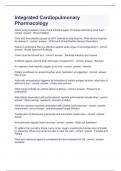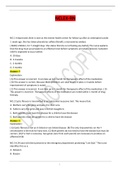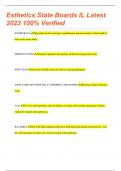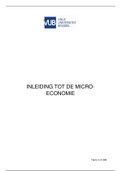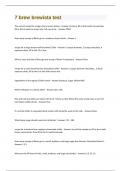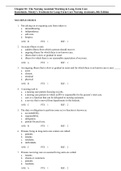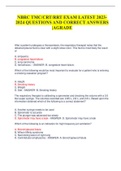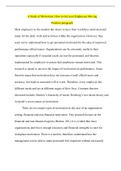PORTFOLO OCOBER NOVEMBER 2024
Unique #:153813
Due Date: 10 October 2024
Detailed solutions, explanations, workings
and references.
+27 81 278 3372
, QUESTION 1
Empirical research is a methodical process focused on collecting and analyzing
data to answer specific questions or address issues within a particular field of study.
In the social sciences, it aims to observe, measure, and understand human
behavior, often through structured processes.1 It relies on direct or indirect
observations or experiences, and conclusions must be verifiable through
observation or experiment.2
Components of Empirical Research
Empirical research generally consists of four main components: descriptive,
exploratory, explanatory, and evaluation research. Each component plays a unique
role in addressing various research goals.
1. Descriptive Research
This type of research aims to define or describe a particular social phenomenon or
issue. It focuses on answering “how” and “why” questions. An example might be,
“How many sexual offences courts exist in South Africa?” This type of research
aims to paint a picture of the current state of a topic without drawing conclusions
or providing explanations.3
2. Exploratory Research
Exploratory research is used when there is little to no prior research on a particular
subject. It seeks to uncover “what is going on” and often involves open-ended data
collection methods like interviews or case studies. For example, a researcher might
explore how journalists perceive the limitations imposed by the Protection of
Personal Information Act (POPI Act) on freedom of speech. This component
focuses on generating insights into new areas where no clear answers or data are
available.
1
De Vos AS Research at grass roots for the social sciences and human service professions (Van Schaik
Pretoria 2002).
2
Davies P and Francis P “Preparatory criminological research” in Davis P, Francis P and Jupp V (eds) Doing
criminolog y research 2nd ed (Sage Publications London 2000) 7–15 14–15.
3
De Vos et al Research 64.
Varsity Cube 2024 +27 81 278 3372

